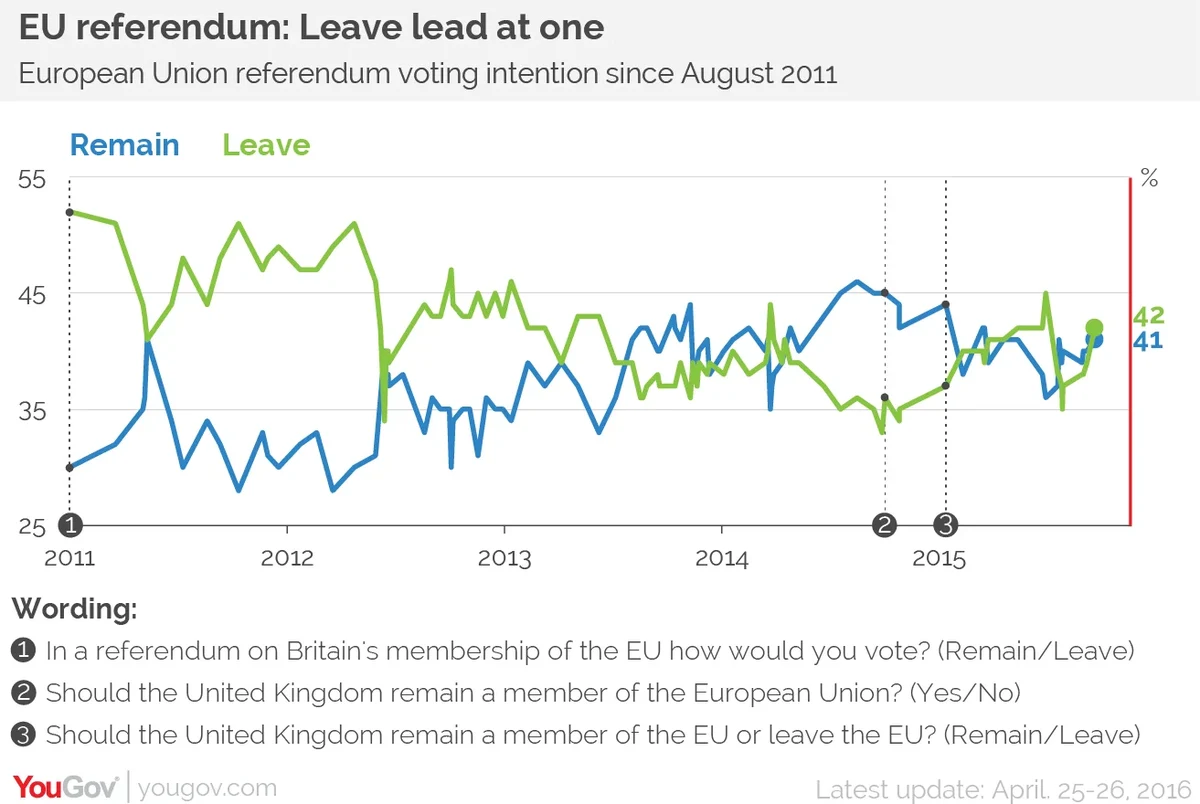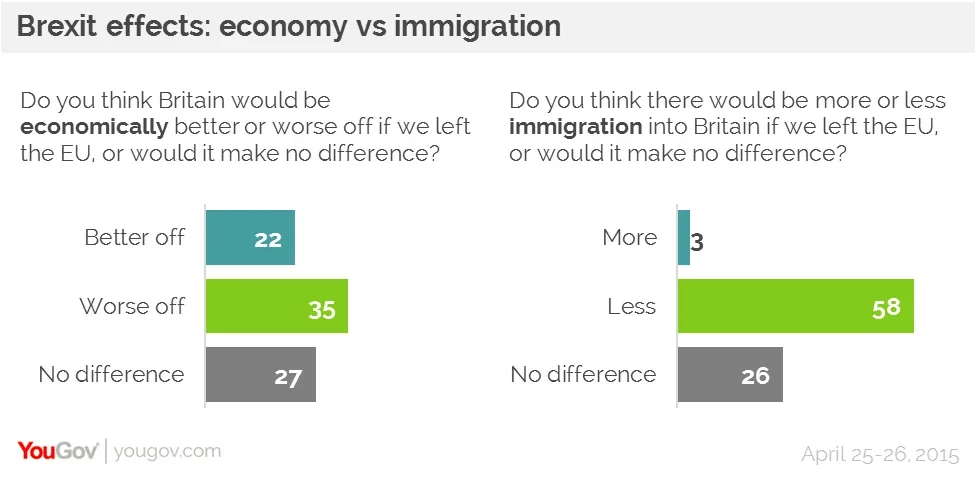Each side has an issue that it wins comfortably on with voters – the challenge for each campaign is to bring them down from the theoretical towards the real impact on people’s lives
The OECD report out yesterday was unusual for the robustness of its language, and has generated predictable controversy. But its two key findings - that Brexit would hurt the UK economy but substantially reduce immigration - would be unsurprising to most voters. Today's YouGov poll for the Times shows the headline result still roughly neck and neck, and contains further confirmation that these two issues are distinctly 'owned' by the two sides of the referendum campaign. How they play in the coming months may well determine the result.

The ‘remain’ campaign has no good answer to the charge that Andrew Marr put to Theresa May on Sunday – namely that immigration will continue to rise if we remain within the EU. The projection of 3 million additional immigrants by 2020 comes directly from the ONS. The closest the Home Secretary got to a convincing response was when she said the referendum was not a ‘single issue vote’ – in other words, if it was just about immigration, she’d vote to leave too – but she thinks there are more persuasive factors on the other side.
Immigration is by far the best issue for the ‘Leave’ campaign. The more it can focus the campaign on immigration, the better it will do. It is important to note that this is not a fringe issue, or a right wing issue. A recent YouGov poll for ITN showed that 71% of people in the UK think that immigration over the past ten years has been too high – and that includes majorities of all political parties. Even 65% of Liberal Democrat voters – that most expansive, internationalist, Europhile group – think too many people are entering the country. If the coming referendum were only a decision on immigration, the Leave campaign would win by a landslide.

Meanwhile, the strongest issue for the Remain campaign is trade and the economy. The more the Remainers can keep the Leave campaign pinned to the wall describing hypothetical trade deals in a post-Brexit future, the better they will do. The Brexit arguments on the topic of trade tend to be about how it might not be that bad, or how the negative impact to the economy has been exaggerated. Nobody seems to be suggesting that Brexit will instantly boost the British economy in real terms (except for the savings on the EU membership ‘fee’). This is the greatest weakness of the Leave campaign.
So the referendum is seen in part as a choice between controlling immigration and securing a strong economy. Of course both sides would dispute this choice, arguing that they each have the answers on both topics, but the evidence clearly shows that voters tend to think that the economy would be better off if we stay in the EU, and that immigration will only come down if we leave. The referendum campaign is not about the single issue voters, whose mind is made up anyway, but rather those voters who would ideally like both a strong economy and lower immigration. They will have to choose which issue they value more highly.
The way to win this argument for each side is to bring these big issues down from the theoretical towards the real impact on people’s lives.
Immigration, for example, is an issue that currently tops the YouGov tracker as the issue voters care most about. What is noticeable though is that it is always much higher-rated as an ‘issue facing the country’ than an ‘issue facing you and your family’. The Brexit camp has to make the issue real rather than theoretical, by focusing on the impact on public services and jobs.
Meanwhile, the ‘economy’ as a term can sound like a euphemism for ‘business’, and that is a much less popular concept among voters. The Remainers must try to move the language away from just the ‘economy’ and towards pounds in your pocket. We recently conducted an experiment in which we asked people to imagine how they would vote if they knew Brexit would make them just £100 worse off per year. This instantly changed a neck-and-neck result to a 12 point victory for ‘Remain’. The effect is even stronger among undecided voters, who flip 18 points from veering towards ‘Leave’ to veering strongly towards ‘Remain’ in this scenario.
The next two months will be a battle for airtime, and a battle for the agenda. If you pass a television set and the discussion topic is immigration, that is generally good for the ‘Leave’ camp; if the discussion is about the economy, particularly how much poorer we might be as individuals if we Brexit, it will be helping the Remain campaign.
PA image












